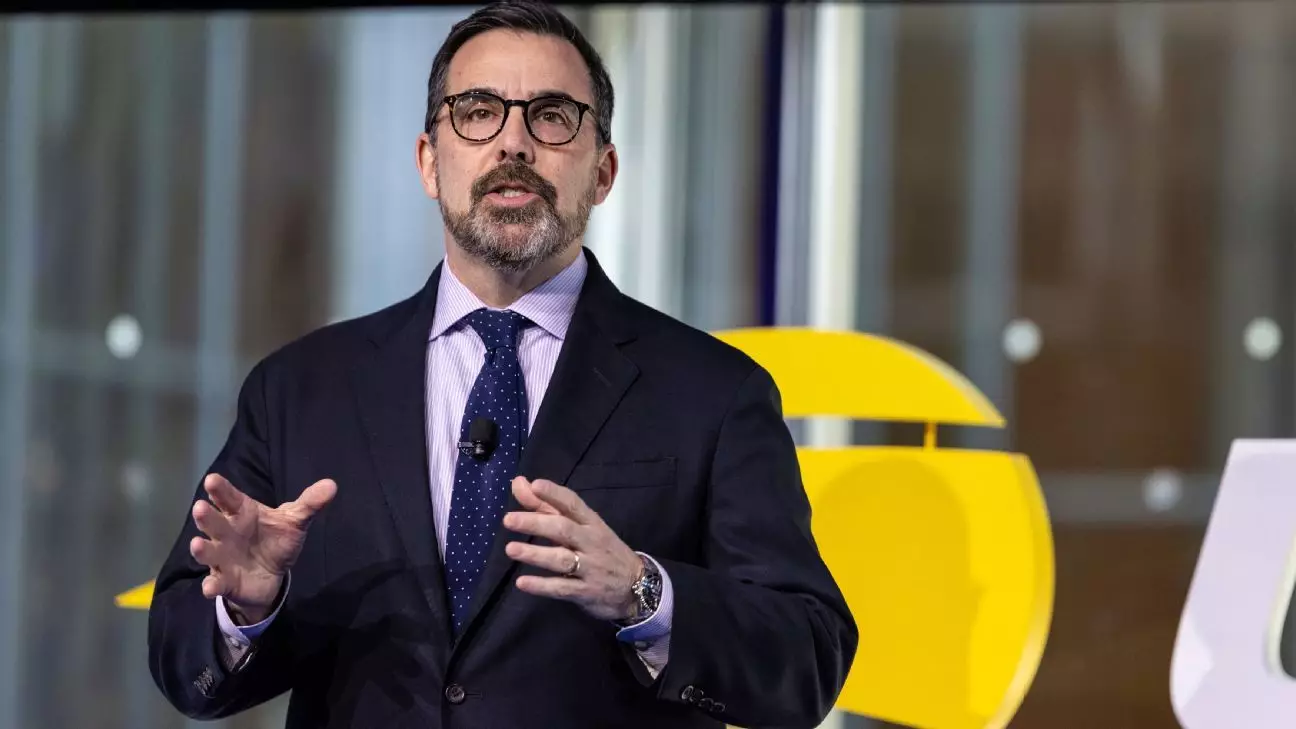The New York Mets are making a strategic move to elevate their organizational structure by hiring Lew Sherr as the new president of business operations. Sherr, a prominent figure in the sports world, has spent over a decade with the United States Tennis Association (USTA), where he emerged as a crucial driver of growth and innovation, ultimately serving as CEO. His tenure has been marked by a period of revitalization for tennis in the U.S., particularly during his leadership of the US Open. This transition is not just a simple hiring; it represents a momentum shift for the Mets, as the franchise seeks to redefine its brand and enhance its community significance under the ownership of Steve and Alex Cohen.
A Visionary at the Helm
Sherr’s career illustrates his capability to merge sports management with visionary thinking. Throughout his time at the USTA, he spearheaded numerous initiatives that led to substantial increases in participation rates and engagement levels within the tennis community. His strategic insights could be exactly what the Mets need as they navigate an ever-competitive New York sports landscape. It’s clear that Sherr understands the dynamics of connecting with fans not only through entertainment but also through stronger community ties—an aspect that resonates deeply with the current focus of sports franchises today.
Sherr’s forthcoming involvement comes at a pivotal moment for the Mets, who have been under the microscope for their performance both on and off the field. His assessment of the Cohen ownership could herald a new era wherein enhanced fan experiences and innovative endeavors are at the forefront, seamlessly integrating business and community outreach.
Adopting Best Practices from Tennis
What makes Sherr’s appointment particularly intriguing is his extensive experience in a sport that thrives on tradition while constantly seeking to modernize. His successful initiatives at the USTA, including an ambitious $800 million project to revamp Arthur Ashe Stadium, showcase his ability to merge significant investments with sporting excellence. This approach could be a game-changer for the Mets, who are exploring ways to generate more fan engagement through various ventures, particularly in establishing an entertainment district around Citi Field.
Sherr’s insights into maximizing revenue—from ticket sales to sponsorships—will undoubtedly influence the Mets’ operational strategies. The parallels between encouraging participation in tennis and increasing attendance at Mets games provide a unique framework to attract a wider audience. He has honed the ability to make sports accessible and entertaining while at the USTA, a philosophy that can significantly benefit the Mets, especially as they aim to revitalize their image in the wake of recent management changes.
Community Connection: A Critical Component
One of the most inspiring aspects of Sherr’s statement during the announcement of his new role is his emphasis on enhancing community involvement. He noted the “unrivaled commitment” of the Cohen family to the team and the initiatives undertaken to foster a strong relationship with the local community. In this summer of change for the Mets, Sherr must capitalize on this connection—transforming fans not just into spectators, but into passionate advocates for their team.
The Mets have competed for attention among New York sports fans, often overshadowed by the glitz of the Yankees or the buzz around the Brooklyn Nets. Sherr’s history with the USTA demonstrates his understanding of how to merge sports with community interests effectively—a method that could lead to a resurgence in Mets fandom. With plans that include entertainment venues and gaming options around Citi Field, Sherr is set to leverage these projects to create more than just a place to watch baseball; he aspires to build a comprehensive sports and entertainment experience.
Anticipation of Change
As Lew Sherr prepares to transition from the USTA to the Mets, the stakes are high for both himself and the franchise. The Met franchise is deservedly hopeful that his experience in enhancing the visibility and profitability of one sport can translate into similar successes for baseball in New York. But the real test will be whether Sherr can instill his philosophy of innovation and community engagement into the Mets’ operations swiftly and effectively.
With Sherr at the helm, the anticipation is that he will bring a fresh perspective and renewed energy to the struggling franchise, setting a tone that inspires both staff and fans. The transition may be bittersweet for him, but for the Mets, it could mark the beginning of a thrilling and transformative journey forward. The combination of Sherr’s expertise, coupled with the Cohen family’s ambition, could redefine what fans can expect from their beloved baseball team in both performance and community relationships.

